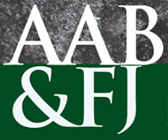Abstract
Purpose: Retaining competent and qualified public accountants has become a challenge for most audit firms. Accordingly, some universities and audit firms are combining their efforts to attract accounting students by establishing the 'School Leavers' Program'. The objective of this research is to highlight some of the challenges auditors experience in the fieldwork. These challenges are defined by the unethical behaviour that auditors exhibit in order to achieve better performance evaluation.
Design/Methodology: The sample of the study comprises two subgroups stratified based on the type of educational system: Classical Accounting Education (CAE) and Work Integrated Learning (WIL) education system.
Findings: The research paper aids in identifying whether dysfunctional behaviour is demonstrated more within a specific academic context.
Originality: The results are expected to help in avoiding and preventing unethical acts, leading to two forms of dysfunctional behavior; Premature Sign-Off and Underreporting of Chargeable Time when auditors are up to performance evaluation.
Keywords: Big Four, Classical Accounting Education (CAE), Work-Integrated Learning (WIL), Auditors' Behaviour.
How to Cite:
Nehme, R., Kozah, A. E., Sadaka, S. & Michael, A., (2023) “Accountants' Behaviour, Performance Evaluation and Educational System”, Australasian Accounting, Business and Finance Journal 17(3), 3-22. doi: https://doi.org/10.14453/aabfj.v17i3.02
Downloads:
Download PDF
101 Views
470 Downloads

